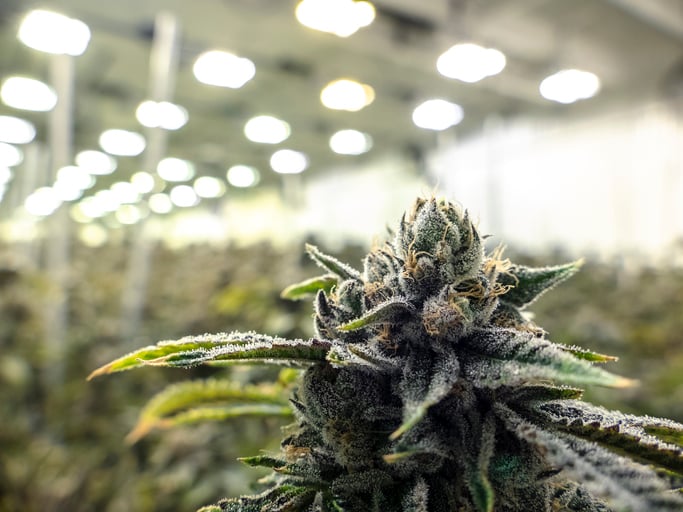The cannabis industry is booming, in case you haven't noticed. Last year, global sales increased to $12.2 billion from less than $10 billion, and they're forecast to rise another 38% in 2019, to $16.9 billion. The legalization of recreational marijuana in Canada, coupled with ongoing legalizations in the U.S. and the expected resolution of early supply-chain problems in California, the fifth-largest economy in the world by GDP (gross domestic product), is expected to drive the bulk of this growth.
This once-in-a-generation-type growth opportunity has also encouraged pot stocks to become aggressive. Since the beginning of 2018, we've witnessed numerous capacity expansion announcements with Canadian marijuana stocks, as well as a flurry of acquisition activity, especially among U.S. vertically integrated dispensary operators.

Image source: Getty Images.
We've never seen a deal like this before
However, nine days ago, we witnessed what could wind up being the most transformative deal in the history of the marijuana industry. Canopy Growth (CGC +0.00%), the largest pot stock in the world by market cap, earned the right to acquire U.S. vertically integrated dispensary operator Acreage Holdings (ACRGF +0.00%) for $3.4 billion in a cash-and-stock deal.
This purchase, should it go through, is unique for a variety of reasons. For starters, it's an entirely contingent deal. In order for Canopy Growth to acquire Acreage Holdings, the United States federal government would have to legalize marijuana.
Canopy's management team has plainly stated on multiple occasions that it has no intention of entering the U.S. cannabis market until the federal government changes its tune on marijuana. Plus, the company's listing on the New York Stock Exchange would be in jeopardy if it began directly dealing with cannabis plants in the U.S. with the federal government classifying the drug as wholly illicit.
It would also give Canopy Growth a huge leg up on its competition in terms of laying the groundwork needed to be successful in the United States. Including existing licenses and pending acquisitions, Acreage has a presence in 20 states. In total, it has licenses for 87 retail locations, as well as 22 cultivation and processing sites.
Furthermore, this retail and growth network will complement Canopy's push into the U.S. hemp industry. In mid-January, Canopy was awarded a hemp production and processing license by New York State that will allow it to construct a processing facility for cannabidiol extraction.

Image source: Getty Images.
Sorry, folks, but marijuana legalization is no sure thing
The announcement of this deal, coupled with the banking-reform measures picking up steam in Congress, has Wall Street and investors thinking that legalization could be right around the corner. These banking reforms would allow U.S. weed companies access to basic banking services in legal states without the fear of federal prosecution or repercussions.
While there are data points that would suggest reform has a reasonably strong shot of taking hold at the federal level -- such as 66% of the American public now favoring broad-based legalization -- investors appear to be overlooking a number of hurdles. In other words, this deal doesn't signal that U.S. legalization is a given at this point, and here are a number of reasons why.
The first problem the legalization movement will run into is that Republicans historically have a more negative view on cannabis than Democrats and Independents. Even with the 2018 Gallup survey finding that seniors and Republicans favored broad-based legalization for the first time in history, there's a pretty substantial gap in favorability compared to Democrats. This makes any legalization efforts somewhat tenuous, especially with Senate Majority Leader Mitch McConnell having previously thwarted efforts to bring the topic up for vote.
Second, despite being highly talked about, cannabis simply isn't the polarizing topic that it needs to be on Capitol Hill to elicit change. An April 2018 poll from the independent Quinnipiac University questioned adults about whether or not they could vote for a political candidate if that candidate shares most of their views but differed on their cannabis policy. A mere 13% of respondents said they wouldn't vote for the candidate, with 82% suggesting they still would. This implies that lawmakers aren't in any danger of losing their elected seats by simply disagreeing with the majority opinion on pot.

Image source: Getty Images.
A third concern has to do with money. Marijuana is a Schedule I drug, and companies that deal with it aren't allowed to take normal corporate income tax deductions of any kind save for costs of goods sold, according to Section 280E of the U.S. tax code. If a company is profitable, this can lead to an effective income tax rate of as high as 90%
Even though weed may be illegal, the federal government has no qualms about collecting federal income tax on corporate profits. Legalizing pot would mean no longer subjecting cannabis companies to Section 280E, thereby costing the federal government an estimated $5 billion in tax revenue over the next decade.
Last but not least, the Canopy-Acreage deal offers clues that legalization could still be a ways off. Language in the press release notes that the "triggering event" (i.e., the legalization of marijuana) can occur anytime within 90 months of the upfront $300 million cash payments to Acreage shareholders. That's 7.5 years' time, and it puts most aspects of this deal in effect until almost the end of 2026.
Additionally, the $300 million initial payout to Acreage comes with a termination fee of $150 million, payable by Acreage. Essentially, Canopy Growth risked very little -- just $150 million -- for the contingent right to acquire Acreage through the fourth quarter of 2026. That's pocket change for a company with $3.7 billion in cash and cash equivalents at the end of the fiscal third quarter that now has access to basic banking services in Canada.
As much as Wall Street and investors would like to believe that legalization is around the corner in the U.S., the Canopy-Acreage deal gives no added indication that this is the case.






